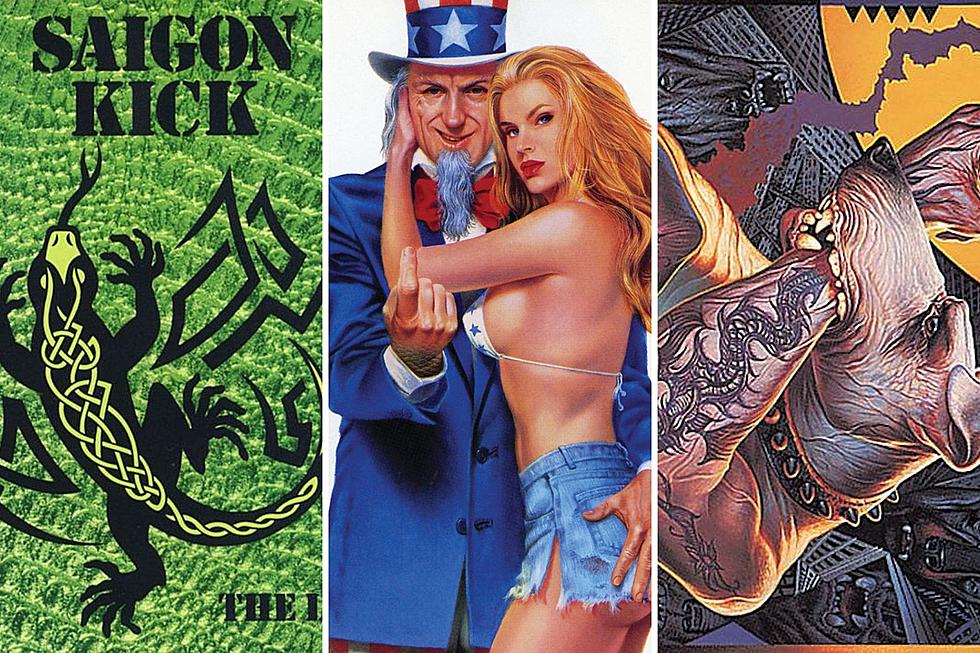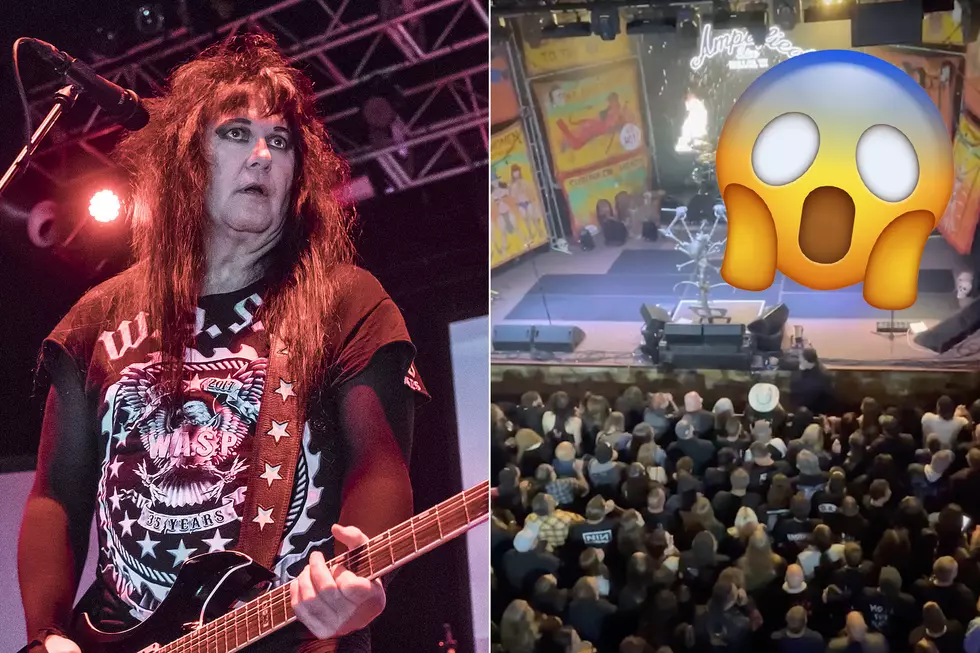
W.A.S.P.’s Blackie Lawless Admits to Using Backing Tracks Live
W.A.S.P. frontman Blackie Lawless admitted to using backing tracks during the band's live performances, but he insisted they're purely a supplemental tool to give fans the best experience possible.
The "I Wanna Be Somebody" rockers are currently touring the United States in celebration of their 40th anniversary. During a "VIP Experience" Q&A session ahead of the band's Saturday show in Orlando, Fla., Lawless addressed the use of backing tracks.
"To answer your question, yes, we are using backing tracks," Lawless said (via Blabbermouth). "You wanna know why? When we go into a studio — and let me clarify that statement; that's me singing — but when we go in a studio, we do choruses, we double, triple, quadruple the vocals. So my feelings were when I listened to live YouTube [recordings of our shows] and we weren't doing that, it sounded thin. When we started supplementing it, it sounded better."
Lawless said he considers the fan perspective when determining how to supplement W.A.S.P.'s onstage sound. "If I'm a fan and I'm coming to a show, I want that thing to sound as good as it can," he continued. "There are other bands — the Queens of the world — they cannot duplicate 24 vocals at one time. That's what they do on those records. If you want it to sound like those records, you've gotta have some help."
The singer and guitarist added that it's "not fair" for bands to rely solely on backing tracks while performing live, but they can be hugely helpful to flesh out backing vocals and other instrumentation. He cited W.A.S.P.'s 1992 album The Crimson Idol as an example. While the initial tour in support of the album "sounded alright" without orchestration, the 20th-anniversary tour with additional tracks sounded massive.
"I went in there [into production rehearsals] and I stood in the middle of that room and I heard that orchestration with the live band, and it made the hair stand on the back of neck," Lawless said. "And I [went], 'Good God. I've never heard this like this before.' To me, that was a treat. And I don't give a shit what anybody says; if I'm a fan, that's what I wanna hear.
"So, again, if somebody's trying to bullshit an audience, no, I don't go along with that at all," Lawless concluded. "You're out there to do a job; do your job. But to supplement it? Absolutely not. I'd wanna hear it."
The use of backing tracks has become an increasingly hot-button issue in the rock world recently. In April, Finnish-American rock band Santa Cruz drew the ire of rock fans — chief among them Eddie Trunk — when they were caught using pre-recorded vocal tracks during their show at Hollywood's Whisky a Go Go.
Sebastian Bach has been a longtime vocal opponent of using backing tracks onstage, telling UCR in 2021, "I don't see a lot of bands coming up that are going to replace [the classic rock stars], because too many of them rely on tapes, and that's not gonna last the test of time. There's gonna be a time when those tape bands are gonna have to do it for real, and people are gonna go, 'This is a fucking joke.' And I just know that real musicians hit your heart way more hard than guys miming to a tape."
Wolfgang Van Halen similarly disavowed the practice in a 2021 interview with UCR. "I think it's a copout to use tracks, unless it's like, for a keyboard part that you can't necessarily get," the Mammoth WVH leader said. "But when I hear about certain bands these days, where it's like, you have lead vocals and lead guitars pumping through the tracks, I think that's lame as hell. I think you should just stay home and listen to shit on Spotify if they're going to play to tracks like that."
Top 30 Glam Metal Albums
More From Classic Rock 105.1










